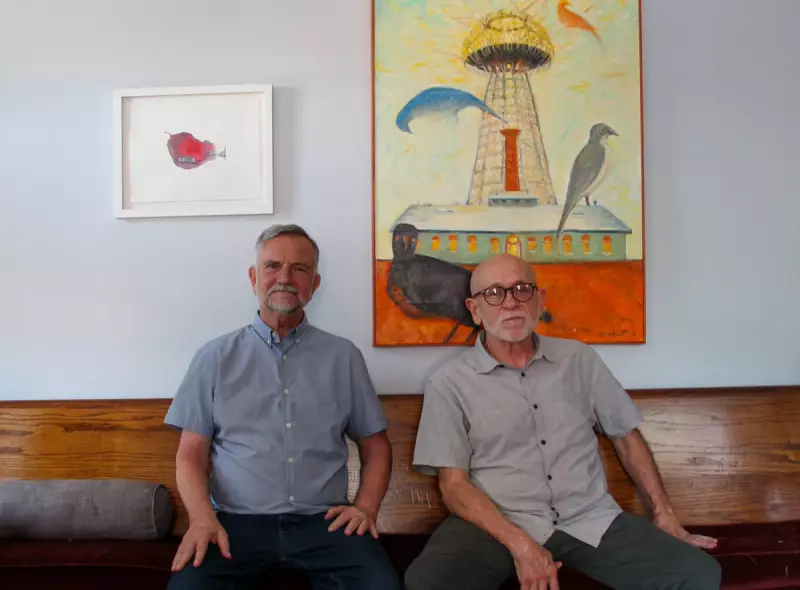
In a quiet Philadelphia neighbourhood, two men operate one of the world's most unusual psychological services. Joseph Kelly and Patrick Ryan have spent four decades developing a unique approach to cult intervention that has drawn both praise and controversy within their field.
The Unconventional Approach
When desperate families contact Kelly and Ryan, they're often at their wit's end. The pair have handled cases ranging from medical professionals abandoning careers to follow new-age gurus to individuals draining life savings for self-proclaimed prophets. Their method represents a significant departure from traditional interventions.
Unlike dramatic confrontations or forced deprogramming, their technique involves embedding themselves deeply into family dynamics. They conduct initial assessments costing $2,500, followed by ongoing work at $250 per hour. This process can stretch across months or even years as they carefully orchestrate circumstances that might lead cult members to question their beliefs independently.
Building Bridges, Not Breaking Doors
Kelly and Ryan emphasise that they don't forcibly extract people from cults. Instead, they describe themselves as mediators who construct bridges through which families can reach their loved ones. Their work focuses on strengthening existing relationships and addressing the family dynamics that made someone vulnerable to cult influence initially.
In one revealing case, they helped a woman involved in an eastern religious group whose marriage was collapsing. Recognising that she viewed her husband as dogmatic and unspiritual, they orchestrated a friendship between the husband and a local Jesuit priest. Through careful planning, including strategic visits to the priest's library containing eastern religious texts, they gradually built rapport until the wife began questioning her group's practices.
The key moment came during the group's third annual low point, when Ryan advised the husband to simply say: "You gave it a good shot." That gentle acknowledgment proved sufficient for the wife to decide to leave the group on her own terms.
From Personal Experience to Professional Practice
Both men bring personal experience to their work, having been Transcendental Meditation instructors in the 1970s and 80s before becoming disillusioned with the organisation. Kelly even joined another group for five years after leaving TM, while Ryan began investigating and exposing cults, including Kelly's second group.
Their shared history informs their nuanced understanding of why people join such groups. "Ten million people have learned Transcendental Meditation," Ryan clarifies. "Ten million people are not in a cult. I mean, they've been lied to. As a teacher, we lied to them."
The Controversy and Criticism
Their approach hasn't been without controversy. Some in the cult-awareness network have criticised their affiliation with academics who prefer the term "New Religious Movements" over "cults." These academics are sometimes disparaged as "cult apologists" for testifying on behalf of groups in court cases.
Dr Janja Lalich, a professor emerita of sociology and cult expert who has collaborated with Kelly and Ryan, confirms their legitimacy while acknowledging the field's complexities. She estimates that fewer than ten people in the United States perform work similar to Kelly and Ryan's, with only three, including them, still actively taking cases.
Privacy remains paramount in their work, making verification challenging. They anonymise all cases and change crucial details to protect clients. Their firmest boundaries emerge when asked to connect journalists with former clients or provide documentation of government agency collaborations.
The Psychological Underpinnings
Central to their method is understanding what cults offer members. They identify "gatekeepers" - tools or ideas that block outside perspectives - and work to neutralise them. This requires families to find common ground, with Kelly and Ryan insisting clients identify "50 things" they can appreciate about the cult before criticising it.
Kelly reflects on his own experience with a guru he followed after leaving TM: "After that experience, Kelly felt Swami-ji could do no wrong. For the next three years, even when he saw the women visiting Swami-ji's bedroom, the demands for thousands of dollars, the outbursts of rage; it all felt insignificant."
This personal understanding shapes their philosophical approach. Rather than convincing people of objective truth, they encourage skepticism about conclusions drawn from personal experiences. As Ryan explains: "The person who gives you that experience will own you."
Their work continues from their Philadelphia home, shared with their dog Kenny and parrot Greta - the latter purchased as a consolation prize after Ryan's second failed intervention in the 1980s. Despite the challenges and dangers they've faced, including genuine fears for their lives from some groups they've investigated, they remain committed to their unique form of intervention that prioritises gradual persuasion over confrontation.






